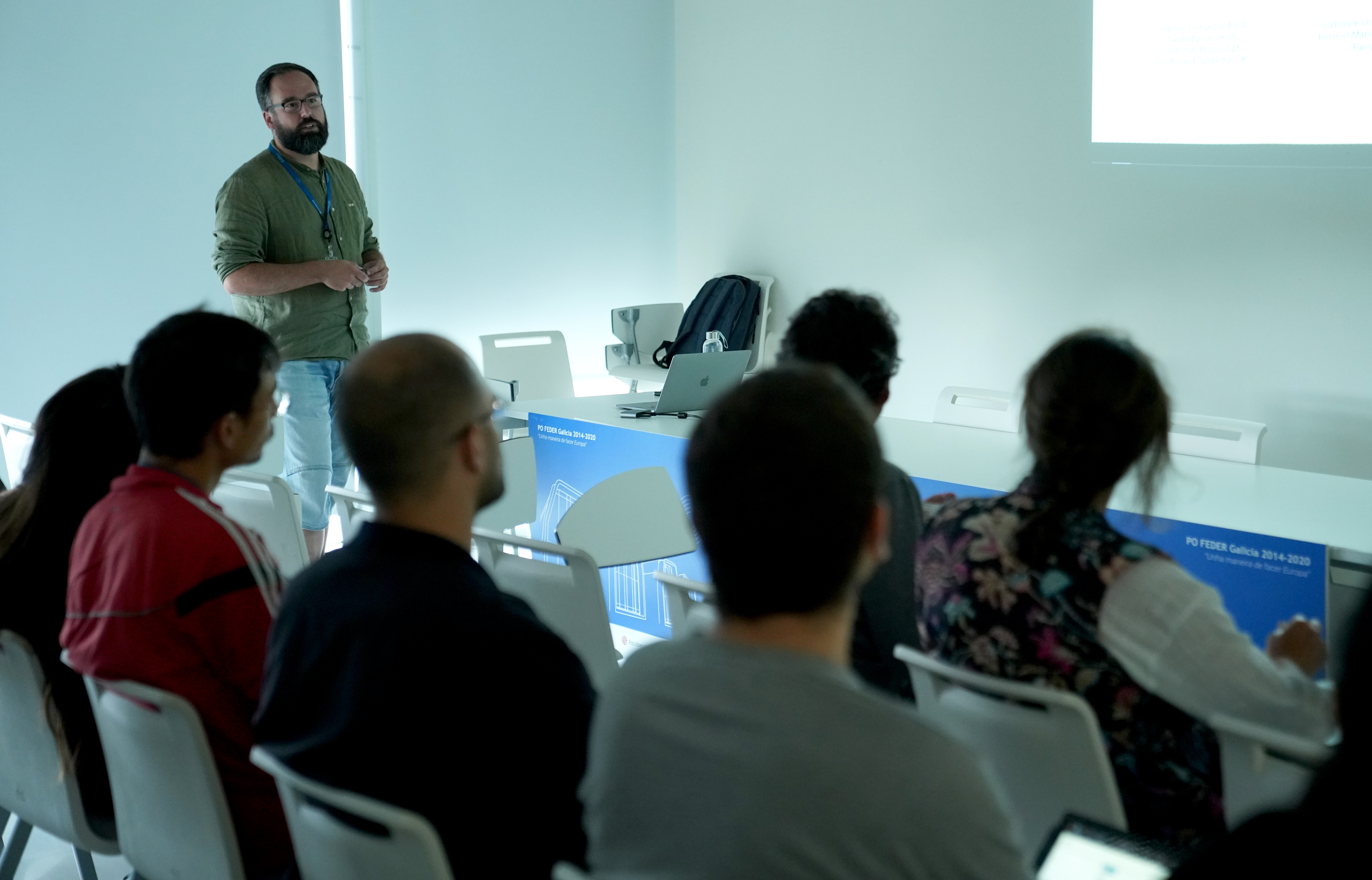Events
O martes 5 de setembro ás 12:00 horas teremos a oportunidade de coñecer o traballo de Carlos Renero Lecuna, do grupo de Nanomateriais Biomiméticos do CINBIO, que impartirá a charla "The use of light from fundamental to biological applications" dentro do ciclo "Coñece ao #teamCINBIO".
Será de xeito presencial na Sala de seminarios da Torre CACTI.


The use of light from fundamental to biological applications
ABSTRACT:
The interaction of light with matter has been a major focus of research in recent years. This research has led to the development of new technologies in a variety of fields. Spectroscopic studies of the optical properties and behaviour of luminescent materials under extreme conditions of pressure and temperature, was part of my early research stage. Lately, I have focused my research into nanomedicine, I used luminescent nanoparticles to measure temperature in biocompatible 3D printed scaffolds and gold nanoparticles as phototherapy agents in in vitro and in vivo studies. I believe that the interaction of light with matter is a powerful tool that can be used to address a wide range of challenges, from the development of new energy technologies to the improvement of human health. I will try to illustrate these points with some examples in the research I was involved in.
BIO:
Carlos Renero-Lecuna is a postdoctoral researcher at CINBIO in the Biomimetic Nanomaterials (Nanobiomimet) lab led by Prof. Luiz Liz-Marzán. He received his B.Sc. in Physics from the University of Cantabria in 2008, where he also spent a year as an Erasmus exchange student at Imperial College London and Cambridge University, where he starts his research career. He then started his Ph.D. in Science, Technology and Computation at the University of Cantabria, where he worked in the High Pressure and Spectroscopy group on the optical properties of different materials under extreme conditions using spectroscopic techniques. He completed his Ph.D. in 2015 and then moved to Paris to do a postdoctoral fellowship at Sorbonne Université. After that, he was awarded a Juan de la Cierva Formación fellowship at the Fundación Instituto de Investigación Marqués de Valdecilla (IDIVAL), where he set up a new research line using Confocal Raman microscopy to study biological samples. In 2020, he moved to CIC biomaGUNE to work at Bionanoplasmonics lab, under the supervision of Prof. Liz-Marzán on the synthesis of luminescent nanothermometers and their application in biological environments and the use of Au nanoparticles for phototherapy.





